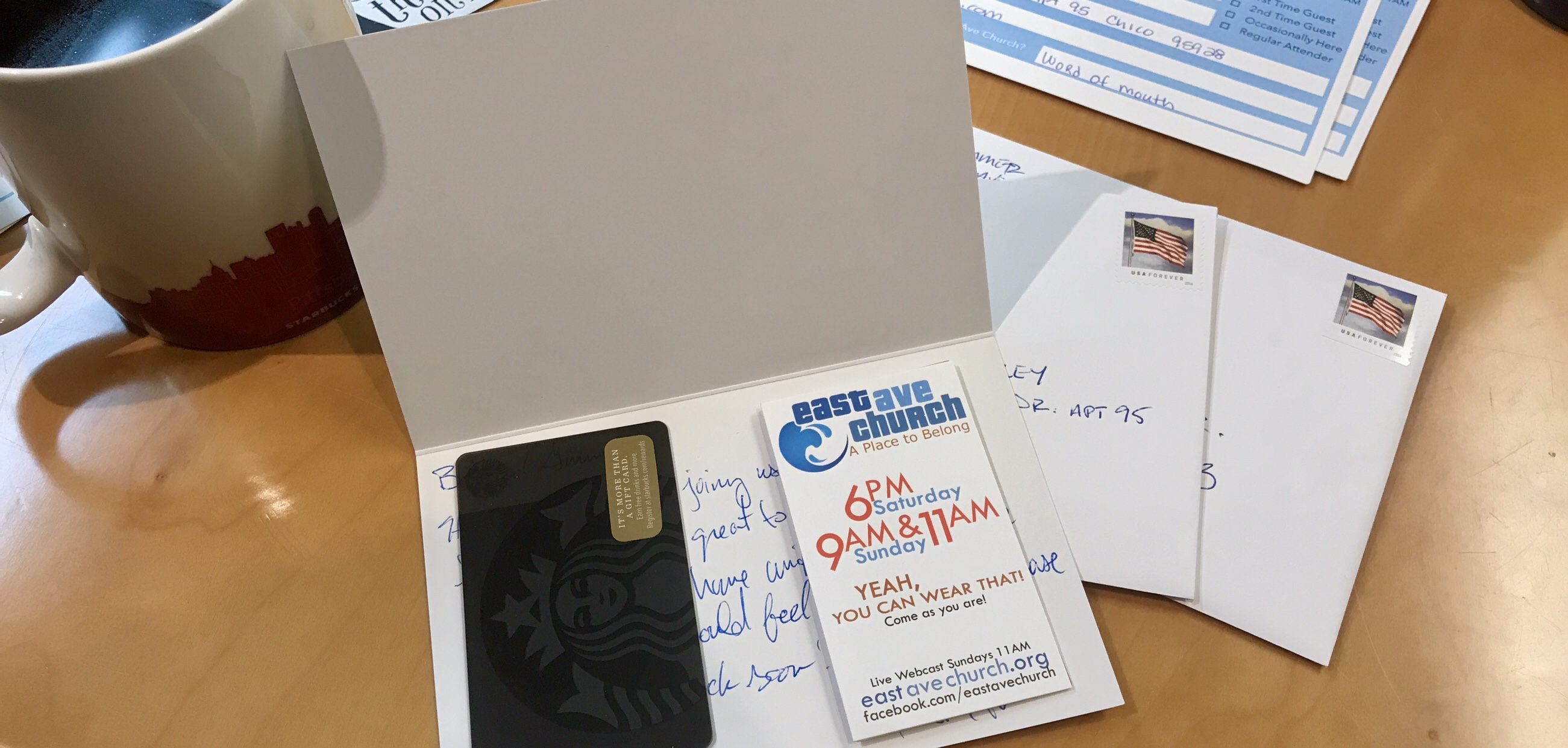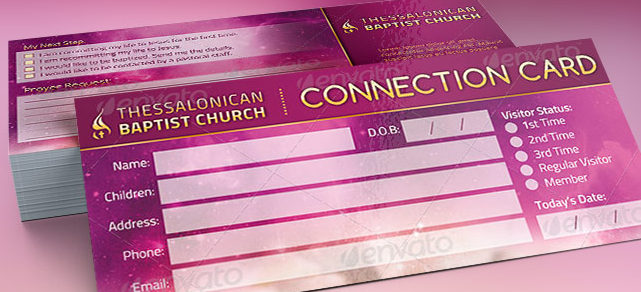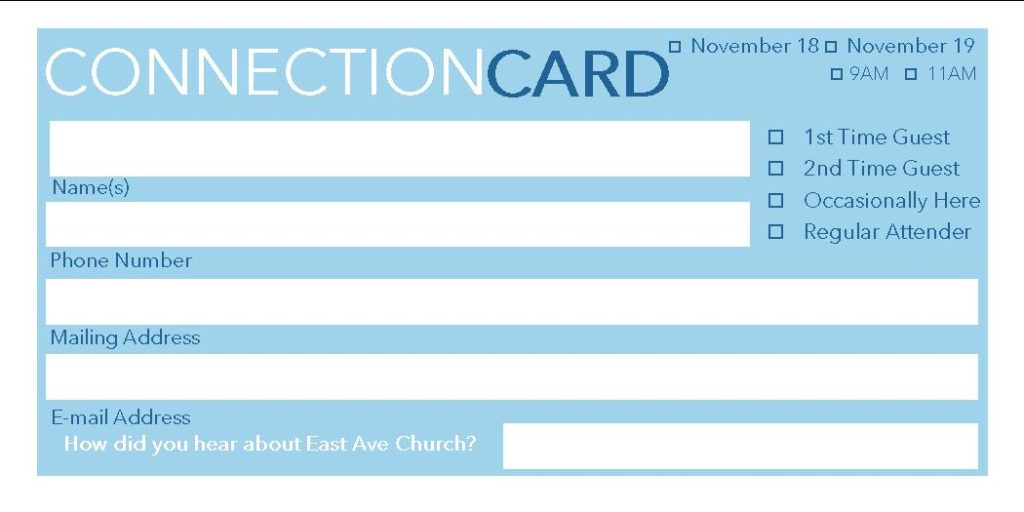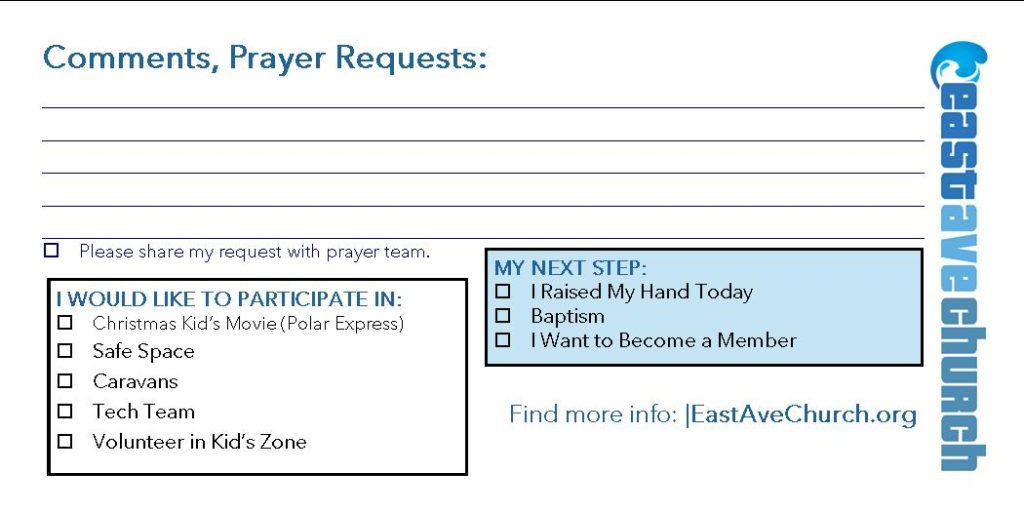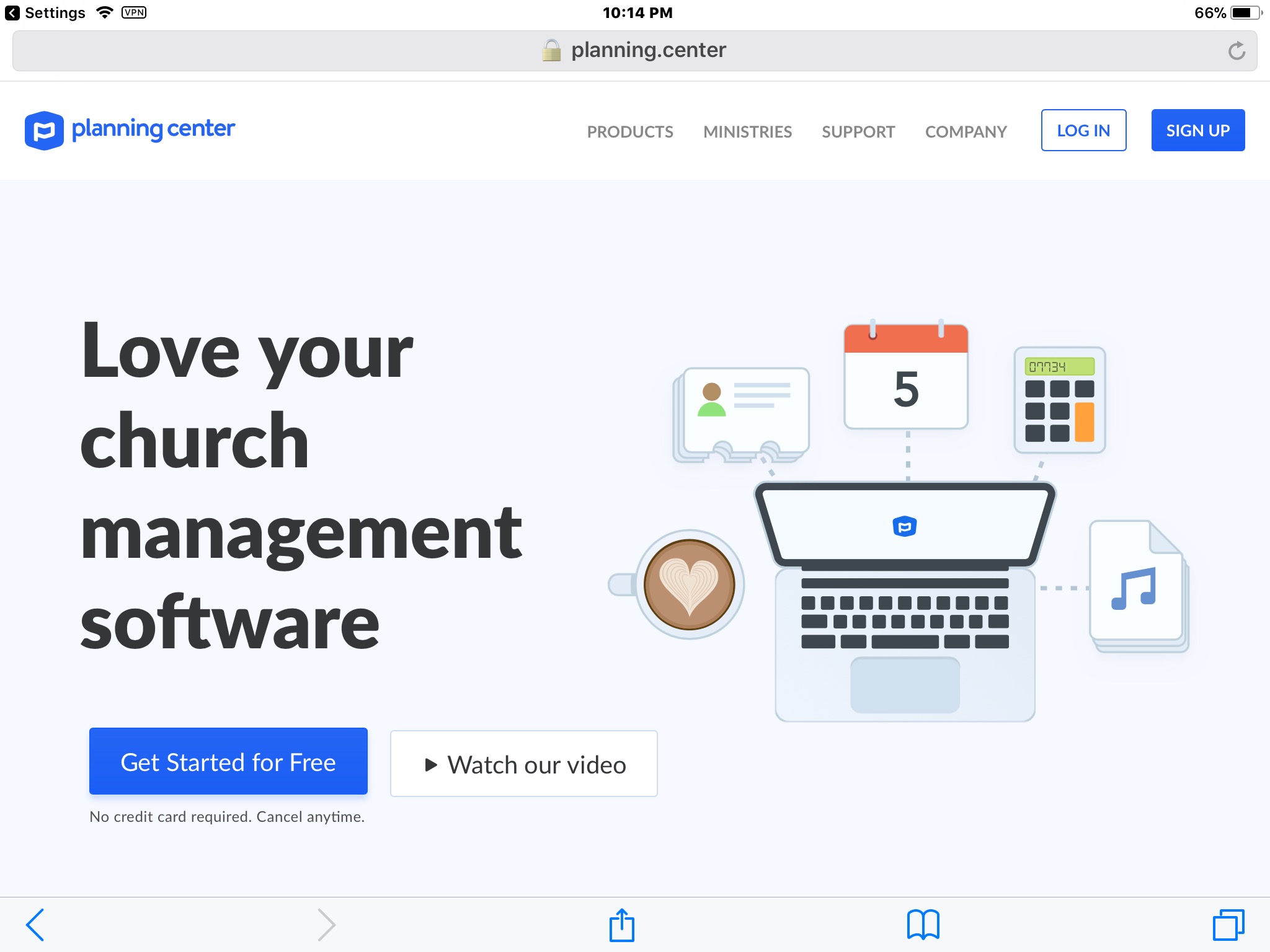We only have 52 weekends a year to make an impact with weekend worship. That might sound like a lot to you. It is not. When much of what a pastor does is predicated on how the weekends go, we must work had to not let one weekend go to waste! Each weekend is filled with possibilities. You cannot control when new people darken the doors of your church. As such each weekend you must be ready for company!
Most of what falls into this category won’t be noticed by your regulars. That’s because they may be used to things being broken. First time guests won’t know it was broken last week. That’s actually what you are aiming at! You are taking away objections that people might have experienced otherwise!
For our church, we care for every weekend with these maxims in place:
Fix what is broken before Sunday
Most any issue in a church can be fixed in just a few days. The question is, which few days is your church going to choose to solve the problem. Sometimes it is a buzz in the sound system. Sometimes ballasts in the lobby lights need to be changed out. Sometimes it is the street signage. Whatever it is, if it can be seen during weekend worship, it needs to be handled immediately!
There are times the cost will be such that you will need board action to care for it. Don’t let the issue go to the back burner just because it involved multiple people and multiple weeks.
In the first month after arriving in Chico as the pastor of East Ave Church I did a complete walk-through of the campus with two of the board members in charge of buildings and grounds maintenance. When we got to the nursery there was a whole host of wrong! There were too many corner to hide, the cribs looked more like tiger cages stacked on top of each other and the standard rocking chairs had been chipping paint off the wall for year, leaving the carpet behind the chair covered in paint and sheet rock. When I pointed this out, one of the board members said, “You know, if we ever get some babies around there we will have to do something about this room.”
What?! No self-respecting parent will ever come back to this church after seeing the low value we place on children. I made it perfectly clear that we would never have families with babies again until we fixed the nursery.
It was obviously going to take many months to solve all the problems in that nursery. That doesn’t mean we waited to get started! Before the next Sunday we had gliding rocking chair donated and fixed the paint on the wall. What can be done by next Sunday should be done by next Sunday.
Avoid random guest speakers
Your weekends are precious. The phone constantly rings with evangelists, guest choirs, the Gideons, local compassion groups and the like. Not only that, but you will also get emails about visiting missionaries on deputations and international denominational people who would like to have some face time with your people.
Be wise in how you implement these options in your ministry. If you think about your congregation as a static group of people who show up 50 weekends a year, then bringing in a music evangelist for variety and to give you a week off sermon prep sounds like a good idea. The way I look at it, we have the opportunity to have guests show up unannounced this weekend. I would like them to choose whether or not to come back based upon our regular worship, not some musician who will never be back.
Do not take your leaders out of church
Early on in my tenure at East Ave Church we hosted a Family Camp Out for anyone who wanted to go camp with us. We took about 50 people with us! When we were averaging around 80 in weekend attendance, that was a big deal! Since we were taking all of our leadership, we asked a local mission to bring in a band and provide testimonies from the men in the program. They were such a great draw that, even though we had 50 people out of town, attendance was about average!
When I got back I met with a young family that had just moved to Chico. They had been in church three times. The first two they found a lively bunch of friendly folks. The third weekend, no one talked to them. They stayed for the monthly potluck after and no one sat at the table with them. They felt abandoned and heartbroken. I tried to explain that even though the sanctuary must have looked the same, most of those people were also visiting. The reason why no one talked to you is that the only poeple from the church left in town were the anti-social people who did not want to camp!
But, we lost that family anyway. And I learned a valuable lesson. Every weekend is important! That was the last Family Camp Out.
WYSIWYG
For us, what you see is what you get! We do the same stuff every weekend. We do some awesome music, teach through books of the Bible, pray, take communion together and take an offering. That’s it. We want to always give our best foot forward. We work within that frame to keep things fresh. We do less things and try to do them better every weekend.
On occasion we will have a missionary speaker, but in such a way as to fit into what we do every weekend. If you share your church culture with most missionaries they can find a way to relate their message to the new audience. Sometimes we might bring in someone to talk about an opportunity to give or participate in something cool, but we don’t give more than 15 minutes to anything! That way we can still do all the regular things that we want new guests to judge us on.
Keeping 52 weekends a year sacred takes much work. It means not mailing in the message. It means not giving up your platform for impact. It means being ready for company at any time, because consistency is a vital part of a healthy church.



